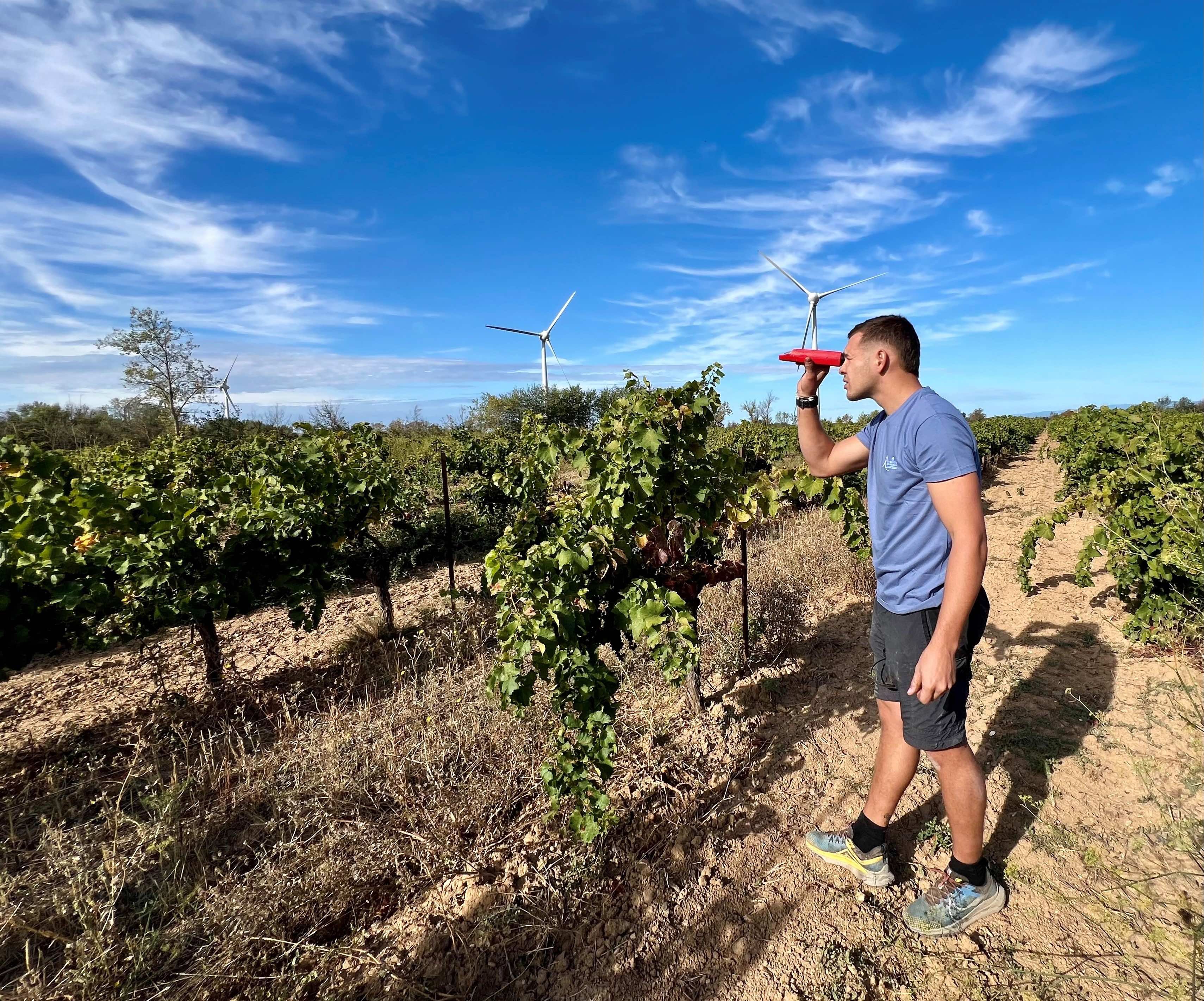While the forces of climate adjustment continue to reshape the wine landscape as we know it, Pays d’Oc IGP is swiftly establishing itself as a global forerunner in regenerative viticulture and biodiversity. This flourishing corner of southern France, with its diverse landscapes stretching from the alluring Mediterranean coastline to the rugged foothills of the Pyrenees, is at the forefront of demonstrating how sustainable practices can elevate wine quality while directly mitigating the effects of climatic change.
Liberty of style
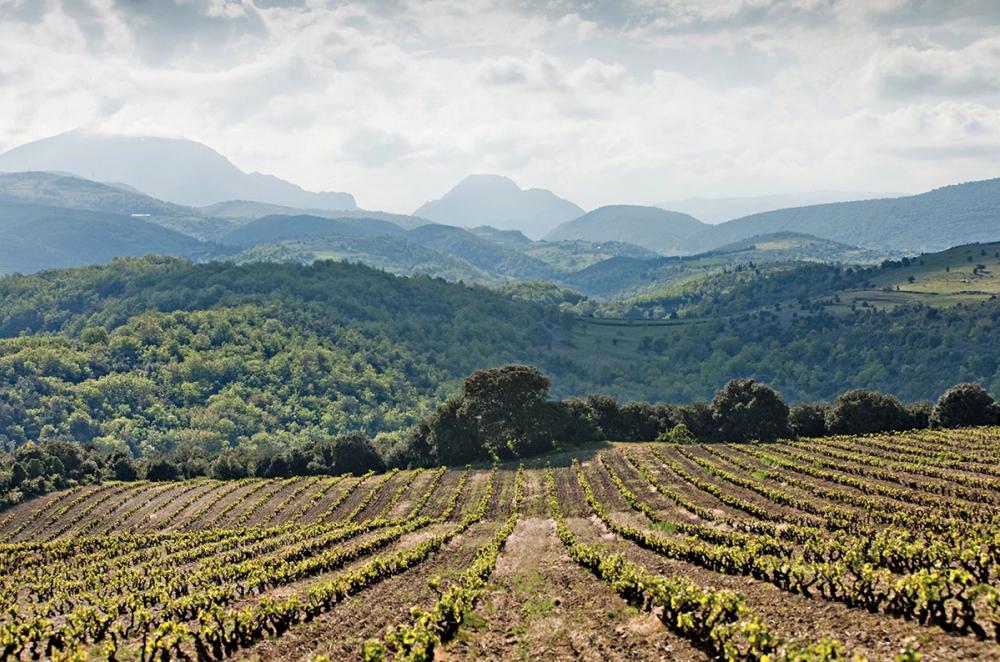
How winemakers are making the most of Pays d'Oc IGP's "warm sunshine, refreshing sea breezes and a dazzling array of altitudes" is helping it produce better quality wine
“Forget the term terroir straight away,” urges Delphine Lorentz, head of communication and promotion at Pays d'Oc IGP. The preferred terminology is now "territory", setting the denomination apart from the more traditionally lauded AOP wines.
Here, a unique blend of viticultural influences - think warm sunshine, refreshing sea breezes and a dazzling array of altitudes - creates optimal growing conditions for a multitude of international and indigenous grape varieties to thrive. With coastal limestone and clay soils alongside stony, well-drained hillsides, this rich patrimony yields wines characterised by distinct freshness, balance and a captivating “je ne sais quoi.”
From a winemaker’s perspective, the Pays d’Oc IGP classification allows a grand total of 58 authorised varietals, granting enviable flexibility and freedom of expression when compared to other regions across France and indeed the world.
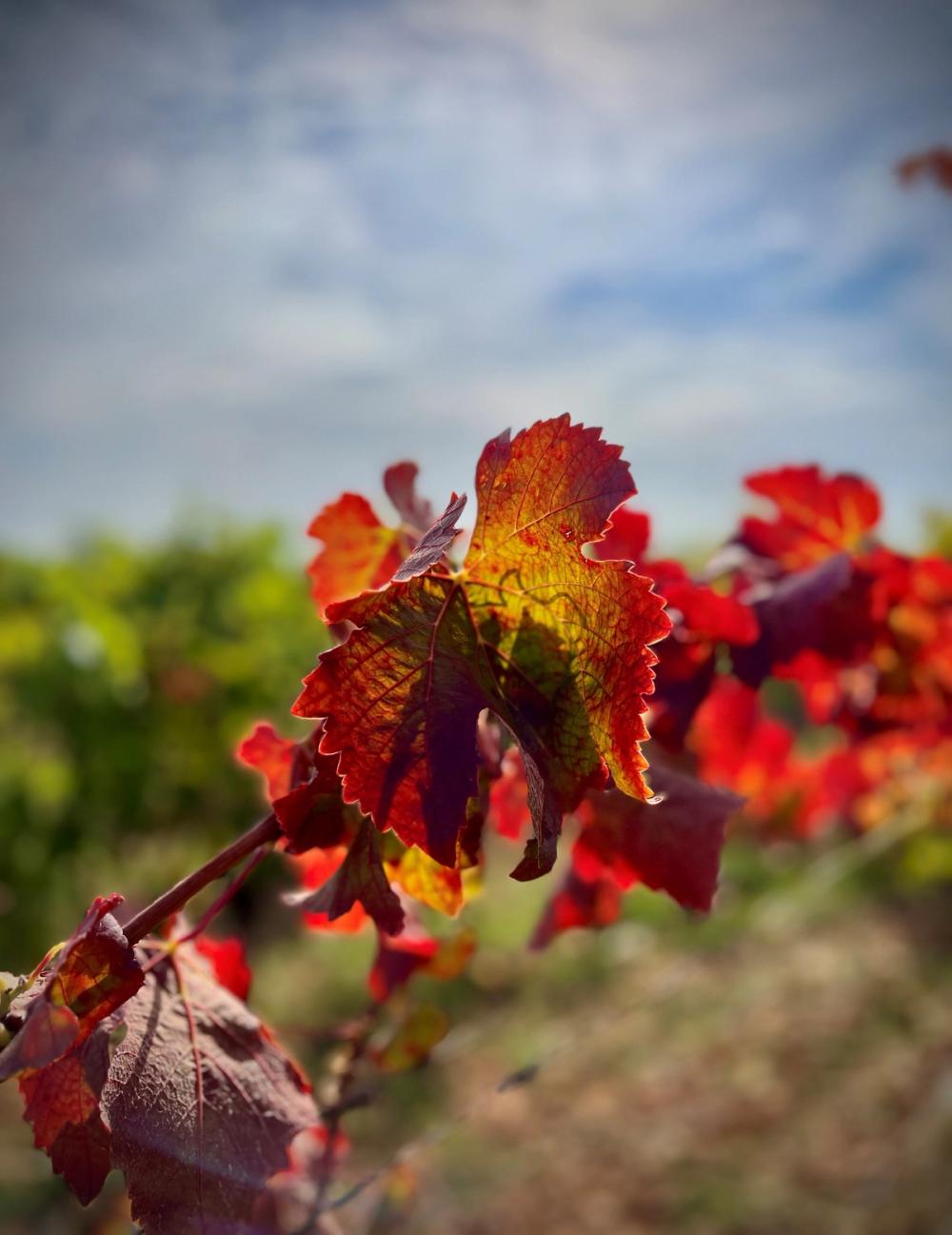
This system enables producers to create both distinctive blends and site-specific single-varietal wines that truly reflect the mosaic of terroirs. In embracing this abundance, winemakers can showcase the distinctive characteristics and nuances of their individual vineyards, resulting in wines that reflect the very essence of Pays d’Oc.
Undoubtedly, the growing variability in climate is placing increasing pressure on both vineyards and regulatory bodies, as rising temperatures and prolonged droughts become the new norm. Producers are reporting record-low rainfall season after season, with totals dropping to 20mm compared to an annual average of 400mm.
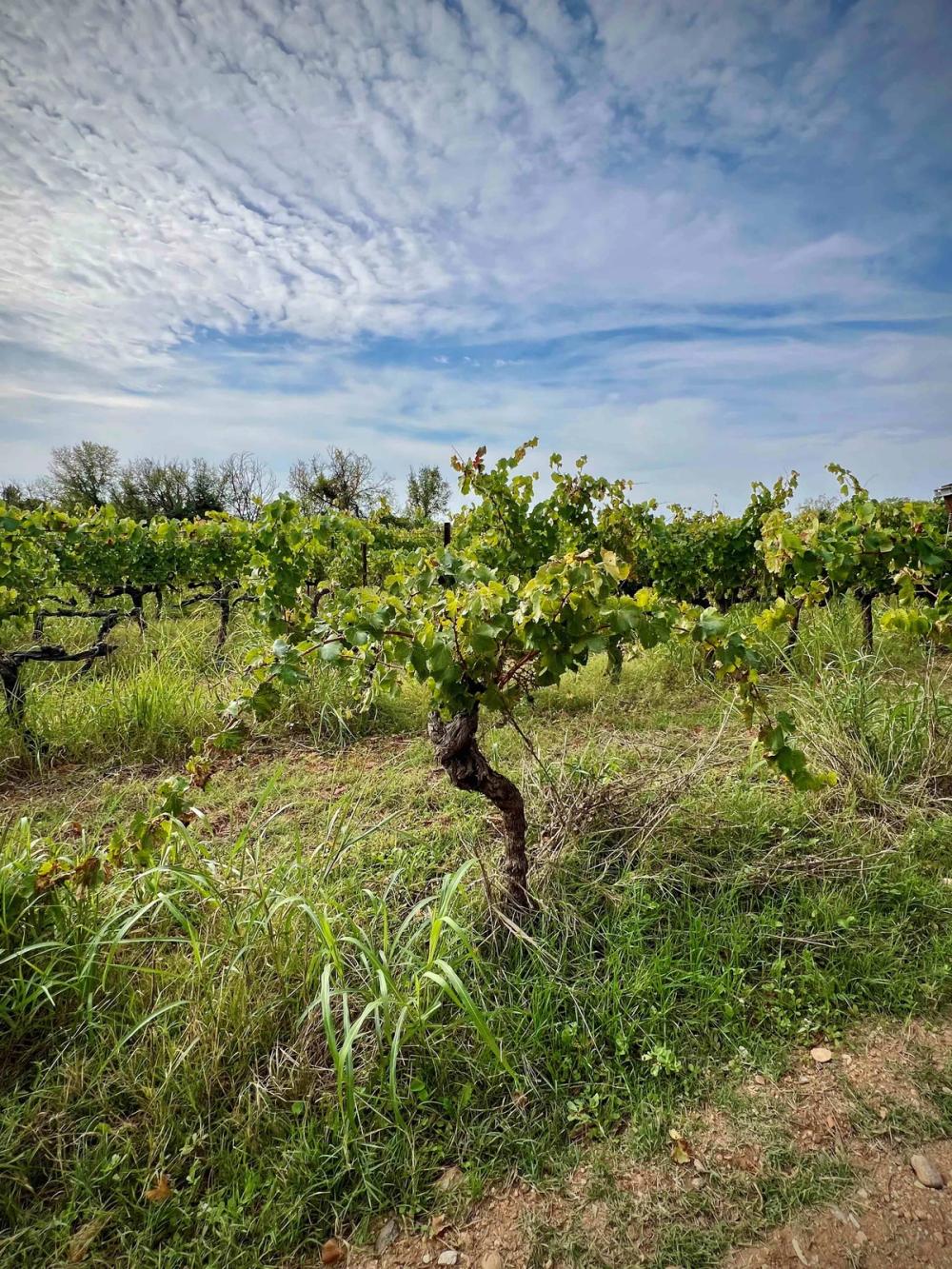
Winemakers are working hard to protect, enhance and secure the future of vineyards in Pays d"Oc IGP with organic and regenerative farming. Picture Fran Brigewater
The impact of these near-drought conditions is painfully evident. In response, and out of necessity, there is a significant shift towards adopting innovative concepts and regenerative viticultural practices.
These include organic farming, improved water management and the planting of cover crops to proactively protect the soil and retain essential moisture. These initiatives not only help vineyards adapt but also enhance the intrinsic quality and character of IGP wines, resulting in expressive, fruit-forward styles that authentically reflect the diverse soil types and strata of the territory.
Minimal intervention for maximum impact
For heir and trailblazer Jean-Claude Mas, of Les Domaines Paul Mas, climate change is a pressing concern. "Reinventing oneself becomes as much a habit as a necessity,” he says, with a glint of determination.
Venturing into the realm of top-tier white wines from the Languedoc - a bold gamble by many standards - Mas has seamlessly merged innovation with tradition, with a core focus on Piwi wines that are made from fungus-resistant grape varieties.
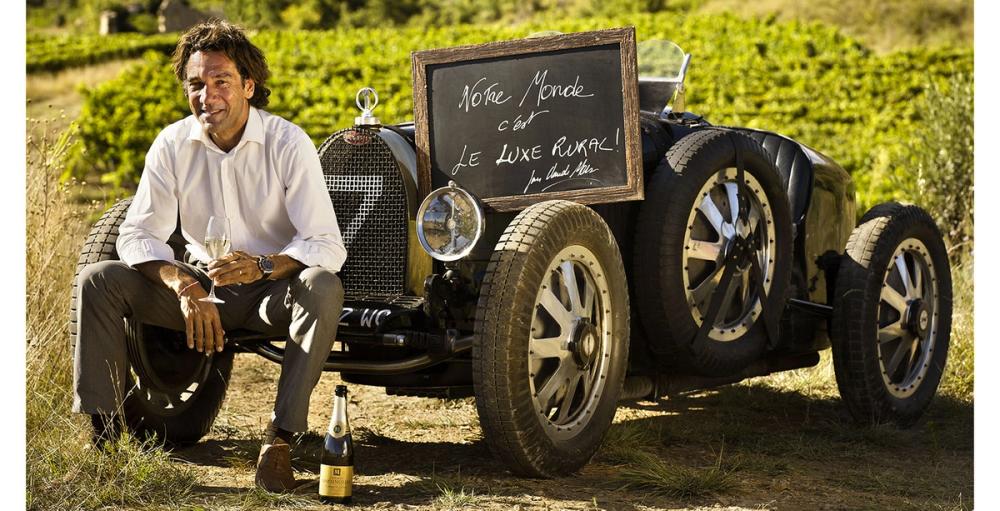
Jean-Claude Mas is constantly looking at new ways to raise the quality of its wines and health of his vines
Bred to withstand common vineyard diseases like powdery and downy mildew, these hybrid grapes allow winemakers to reduce chemical pesticide use, thereby promoting sustainable viticulture.
Innovating with altitude
At the biodiverse 200-hectare estate of Calmel et Joseph, the close-knit team captivates from the outset with a fundamental winemaking philosophy centred around long-term partnerships and symbiotic relationships with local winegrowers. This meticulous parcel selection approach is specifically tailored to the exceptional conditions of its higher-altitude vineyards, which range from 500 to 600m, largely cocooned beneath the protective embrace of nearby mountains.
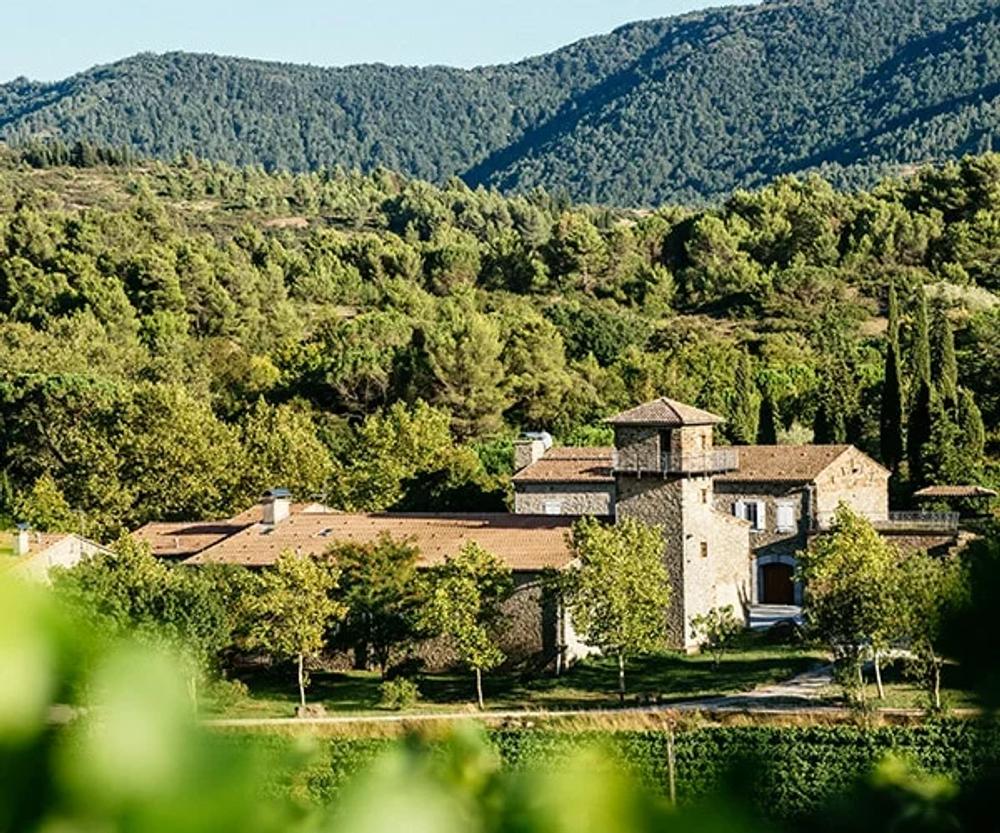
The beautfiful estate at Calmel & Jospeh - imported in the UK by Daniel Lambert Wines
These elevated sites naturally benefit from cooler temperatures and pronounced diurnal shifts between day and night, offering a vital buffer against the challenges posed by an increasingly warming terra firma. By focusing on drought-resistant grape varieties, the estate ensures its vineyards remain resilient without compromising the signature balance and freshness of their wines.
Coastal cooling and the four winds
Nestled between the Thau Basin lagoons and the Med, the dynamic cooperative Les Caves Richemer - famed in the 1950s and 1960s for producing the iconic Noilly Prat vermouth in Marseillan - is perfectly positioned to harness the cooling coastal breezes that moderate temperatures across its 1,500 hectares of vineyards. Renowned for its rich gastronomic heritage, especially in pairing oysters with citrusy, fresh whites from indigenous varieties like Piquepoul and Terret, this seahorse-emblazoned cooperative remains steadfastly committed to innovation.
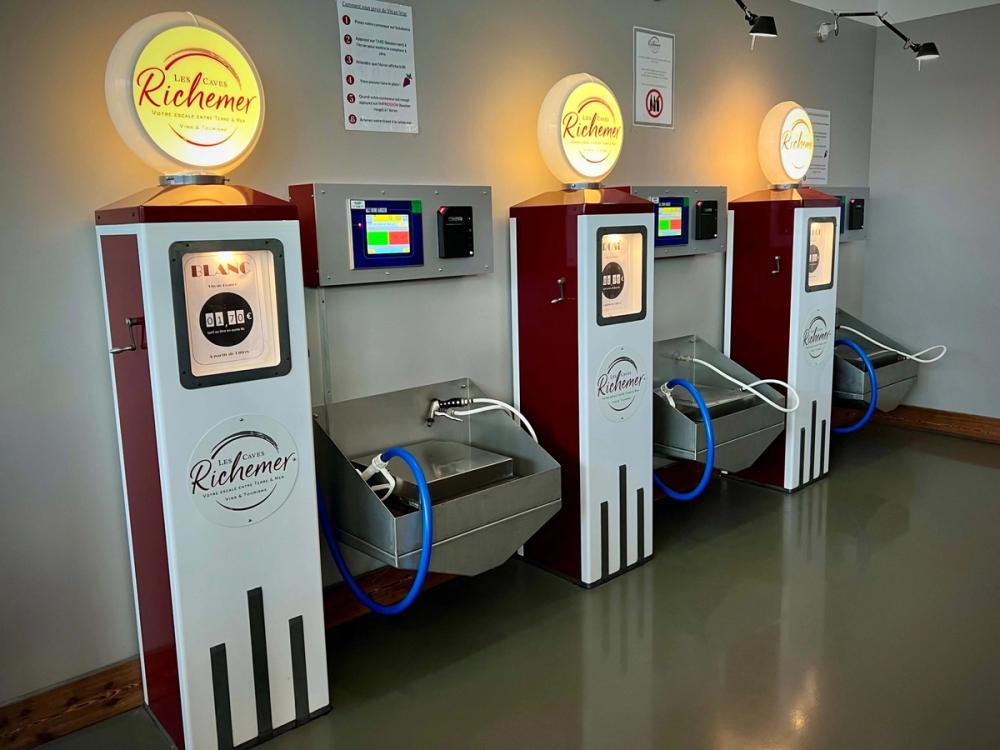
Fill it up: the retro-style gas re-fill wine stations at Les Caves Richemer
One standout initiative is its wine refuelling station, featuring retro-style gas station pumps that allow customers to easily refill their wine bottles in a convenient, eco-friendly manner.
Terret, one of the region's oldest varieties, is now celebrated as a grape for the future due to its drought resistance, thick skin and late-ripening characteristics. Under the leadership of Florian Masson, the winemaking team employs innovative thermovinification techniques to minimise the use of sulphur in their wines, a crucial factor driving demand in a number of key global markets.
Biodiversity as a natural buffer
“Sustainability and biodynamics are at the core of our philosophy,” explains Cathy Boutié, co-owner of Domaine Ricardelle de Lautrec, a picturesque estate with a history deeply rooted in the ancient Via Domitia, the Roman road that runs through their 50 hectares of vines.
“We believe that working in harmony with nature is key to producing wines of true authenticity and quality. Our biodynamic practices are attuned to lunar cycles and the natural elements, helping us nurture our vines without chemicals. This minimal-intervention approach extends into the cellar, where we focus on preserving the environment while expressing the richness and uniqueness of our terroir. For us, respecting nature’s rhythms is essential — the premium quality of our wines is directly related to our immense respect for the land.”
Biodiversity therefore lies at the very heart of this estate's climate adaptation strategy, set against the dramatic backdrop of towering wind turbines. The impact of these windmills on both the vines and the workers remains a topic of ongoing debate meanwhile by integrating hedgerows, wildflower strips and beehives throughout the vineyards, Domaine Ricardelle de Lautrec has created a self-sustaining ecosystem that naturally combats the effects of climate volatility.
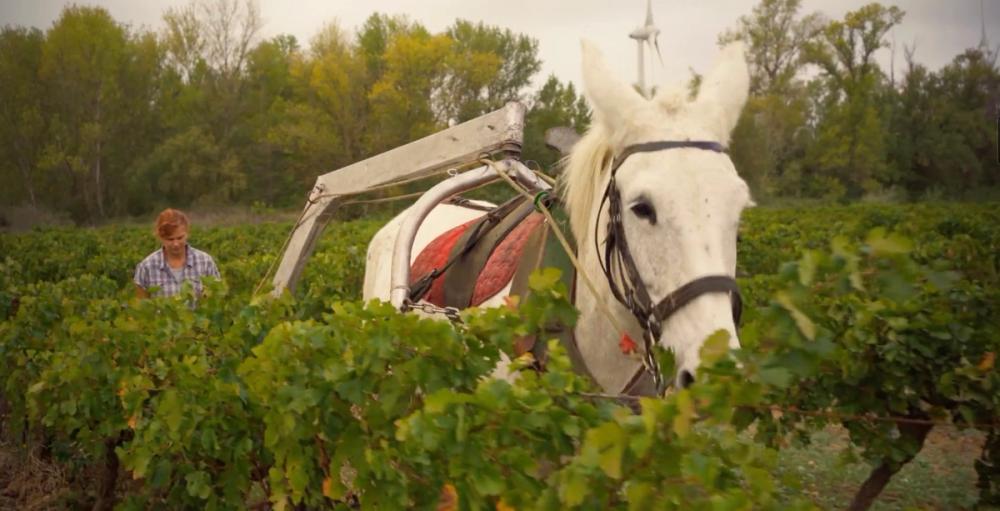
Biodversity, sustainability and working with traditional farming practices is what Domaine Ricardelle de Lautrec is about
Its organic farming methods, coupled with regenerative techniques, not only improve soil health but also enhance the vines' resilience to extreme weather, ranging from erratic rainfall to rapidly rising temperatures.
Gastronomy and enotourism expert, Sarah Hargreaves, succinctly captures the market dynamics of this region: “It’s a shame that, until now, a majority of the most prestigious and affordable wines from Pays d’Oc have rarely reached the UK market. Due to climatic factors out of their control, these producers operate at the extremes of viticultural endeavour, yet their unwavering commitment to sustainable practices and biodiversity often goes completely unnoticed.”
In blending time-honoured traditions with forward-thinking, innovative practices, the vignerons of Pays d’Oc are not just responding to the challenges of today -they are securing the future of their vineyards for generations to come. Their commitment to sustainability runs deep, with cutting-edge environmental strategies centred on vineyard health and a celebration of biodiversity in all its forms.
In so doing, Pays d’Oc is proving that an intrinsically sustainable approach is resulting in far more than exceptional wines. The producers, both independently and collectively, are cultivating a thrivingly resilient ecosystem and a mindset capable of withstanding whatever challenges the environment may present.
* If you would like to find out more about Pays d'Oc IGP go to the website here.
